Reader reaction to Ukraine war: ‘I see no difference – they’re all fleeing death in war’
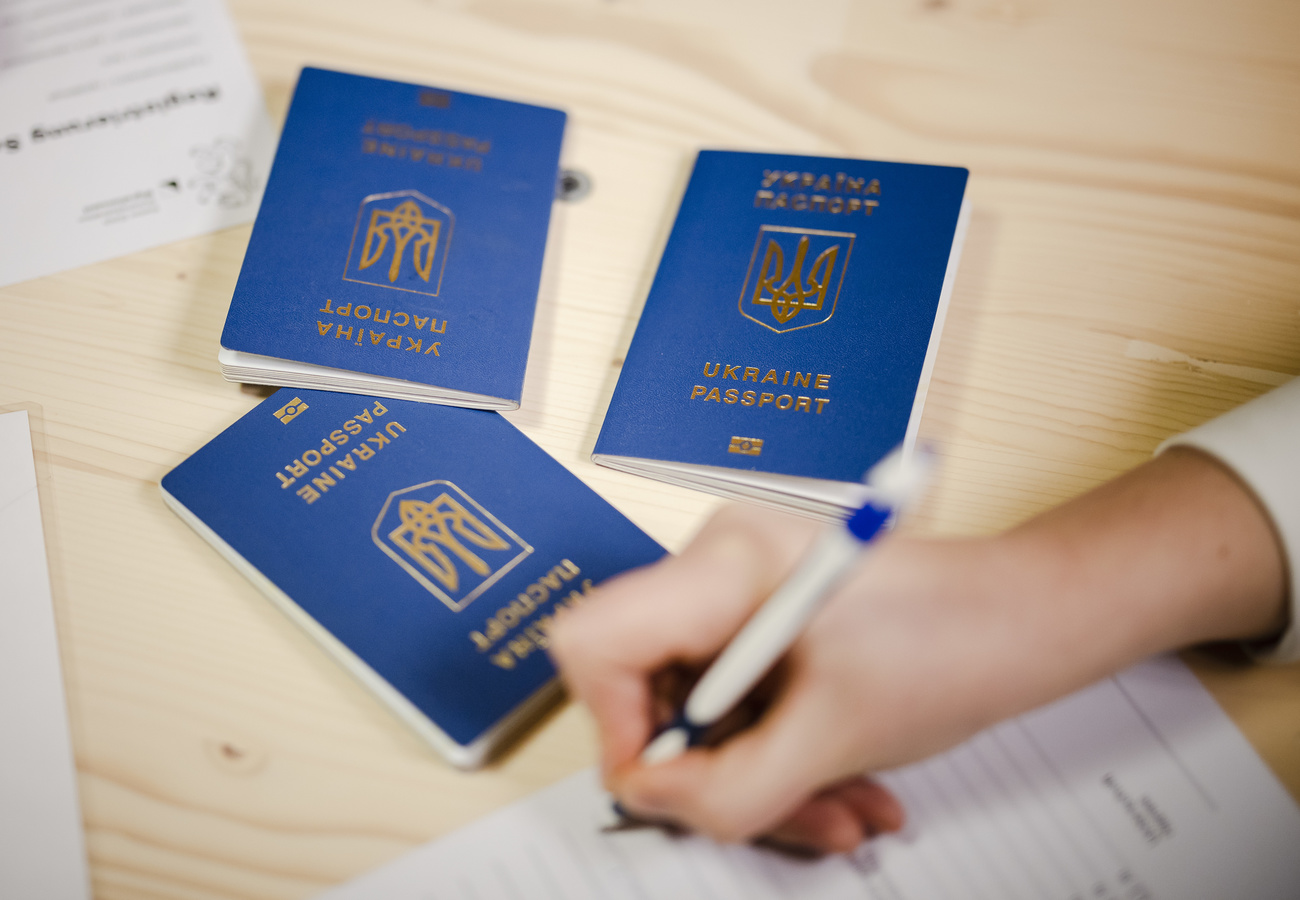
The decision by the Swiss government to grant Ukrainian refugees a special protection status has prompted mixed feelings among asylum-seekers from Arab, African and Asian countries, who have fled bloody conflicts themselves. Comments from Arabic-speaking readers of SWI swissinfo.ch evoke shock, consternation – but understanding too.
In spite of their awareness of the tragedy of the Ukraine war and the extent of human suffering there, readers on swissinfo.ch’s Arabic-language Facebook page have reacted in various ways to Switzerland’s welcome of Ukrainian refugees – starting with resentment.
“I cannot understand what the difference is between refugees from Syria, Central Africa or Afghanistan and those coming from Ukraine – they are all fleeing death in war,” writes one user.
Switzerland is granting a special protection permit to Ukrainians arriving in the country. The mechanism for status S, as it is called, is intended to allow authorities to react appropriately, quickly and practically to situations of mass exodus. To avoid burdening the existing asylum system, people coming from Ukraine can be granted protection without going through the normal procedure of applying for asylum.
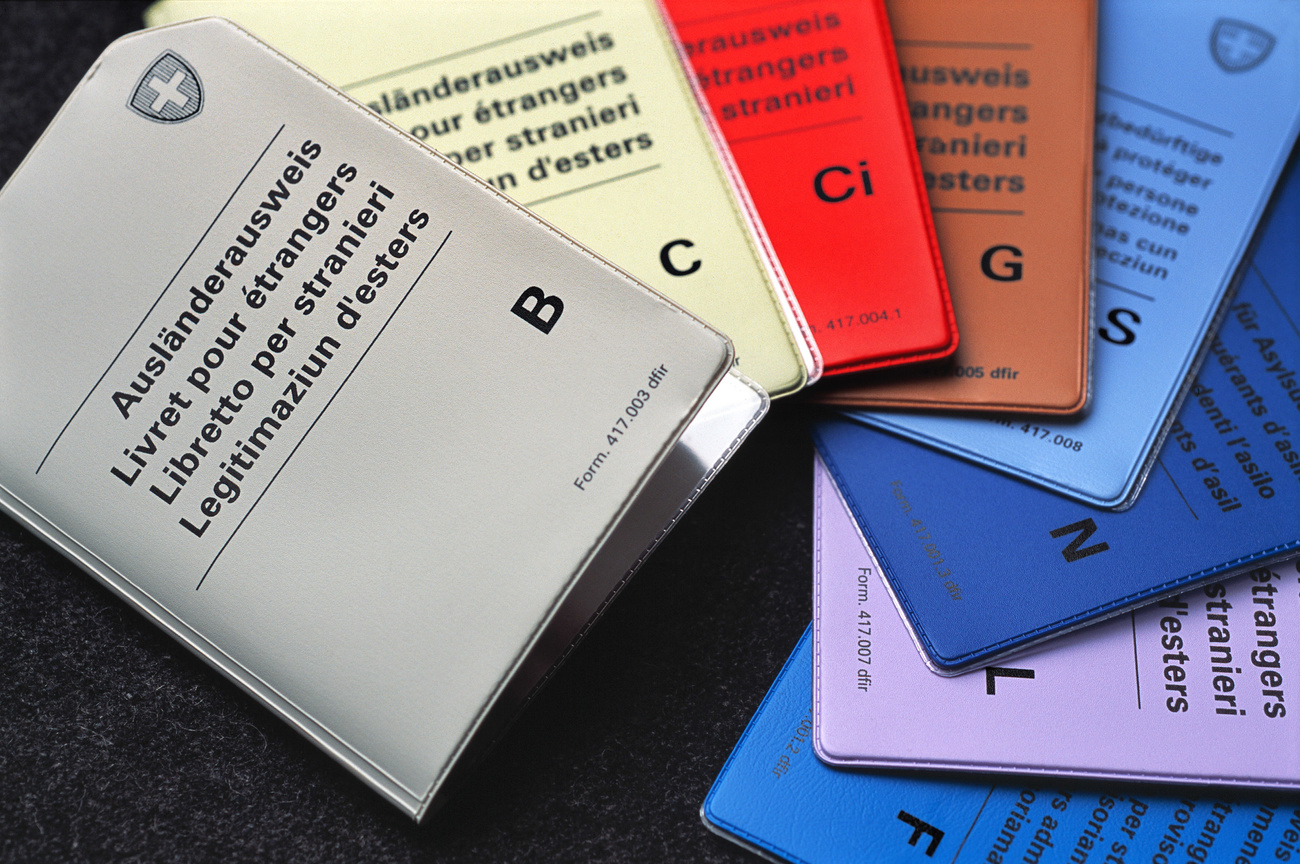
More
Switzerland’s S permit for refugees from Ukraine
The government’s decision has been met with approval and praise, but also sharp criticism. Miriam Behrens, director of the Swiss Refugee Council, told Swiss public television SRF that “legal inequality now prevails”. Other refugees were likely to bear the brunt of this if their own asylum procedure is delayed because of the Ukrainian refugee caseload. Status S holders have rights to family reunification and to work, privileges that other asylum-seekers with a provisional permit don’t enjoy, Behrens pointed out.
Permit S holders can obtain asylum in Switzerland without going through the normal refugee determination process. The S permit is issued for a period of one year and can be renewed. After five years, permit holders become entitled to residence permit B, which is then valid for the period of asylum granted.
War in Syria a ‘kids’ cartoon’
One reader on Facebooks writes: “Where was this help when it was needed by people from the Middle East, where disastrous wars have left hundreds of thousands dead and millions homeless?” An Iraqi user adds: “Humanity means mercy and common sense, but it should be extended to all suffering people without giving one group more privileges than another – all men are brothers.”
The commenters pose many rhetorical questions. “If we compare Syria with Ukraine, we find that in both cases people were compelled to leave their homeland in order to save their own lives,” reads one post. “So why do some get an S permit for those requiring asylum and the others a B or an F Permit? Doesn’t this count as racial discrimination? Where is the equality and transparency here?”
A Syrian reader writes: “It looks as if the war in Syria was [no more real than] a children’s cartoon. So the Syrians got nothing.”
For another reader, the decision by Switzerland meant “not openness, but racial discrimination”. There was only “openness to the same [skin] colour and culture,” he adds. “That is their privilege, of course, but please stop replaying the same old scratchy record of humanitarianism – it is getting on our nerves.”
Feelings of anger alternated with disappointment in the comments: “War in Ukraine has, alas, exposed the lovely, civilised, humane West that we all admire, and unmasked the hypocrisy of its civilised image.” Some went further: “It is all too clear that values in this world are shattered, and that the basic principles Europeans have been preaching to us are no more than words on paper.”
Two kinds of ‘humanity’
Unsurprisingly, some asylum-seekers compare the difficulties they have experienced for years with the privileges now conferred on Ukrainian refugees: “What about all the refugees who still have no residence permit, who are not even allowed to buy a SIM [mobile phone] card or visit their families, who are only a few kilometers away?”
Another expresses frustration with Swiss law: “Honestly, I would not wish that F permit [given to rejected asylum-seekers who cannot be returned to their home country] on my worst enemy. But obviously double standards and injustice are phenomena that exist in the Swiss legal system.”
Others are more understanding as they compare situations: ” Europeans are welcome in Europe [but] people from other countries are not, even if they are likely to perish in the cruelties of war. If they are taken in, then it is only half-heartedly, and there are harsh conditions imposed on their lives and [ability to] work. Yet we can hardly blame the Europeans, since even the Arab states have not taken these refugees and subject them to massive pressure. Racism seems to come mainly from your next-door neighbour.”
After many Arabic-speaking Swiss pointed out that most of the Ukrainian refugees were women and children, one person responded: “If one adopts a pragmatic approach and a materialistic perspective, one can understand that, but if you follow the humanitarian standard, every person in flight, every refugee, whether it is due to war, natural disaster or unjust persecution that they are on the run, has a basic human right to safety, shelter and life (not necessarily integration), no matter their skin colour or nationality. But as long as people are being selected like this, there is no reason to speak of ‘higher human values’.”
Another writes: “I think that Switzerland should review its decisions in the case of the F permit for people who have been living in this country for more than six years.”
Understanding for Switzerland’s position
The discussion also shows that Arab refugees living in Switzerland see things from a somewhat different perspective.
Sympathy for the new refugees is apparent: “May God help them along their way,” one reader writes. “Thank God we are here, have a job, and do not lack for anything. The category of residence permit really makes no difference.” Another reader says that “Switzerland can teach a lesson to those Arab states that have not opened their doors to their own persecuted people.”
One user goes even further: “The sympathy Europeans have shown for the Ukrainian people is a wonderful example, and Arab and Muslim business elites and wealthy people should learn from it.”
As for Syrian refugees, one reader points out: “Switzerland opened its doors to Syrians too. Thousands of Syrian refugees have come to Switzerland. There are even people who got a B permit without having to go to court and were able to move into private accommodation right away.”
Others speak from their own experience: “I have studied in Swiss schools, worked with the Swiss, and I have never known them to be anything but sincere, faithful and moral people. Peace and humanity flow in their veins, like the Rhine does through their cities and towns. If Switzerland is racist, what is one to say about the Arab nations, Russia, China, Korea or America?”
Cautious hope
When it comes to the future, Arabic-speaking readers have one question for Swiss authorities and the public: “Will there be a kind of sympathy for refugees from third-world nations or will democracy and civil rights in Switzerland require that people be classified according to their origin?”
Etienne Piguet, deputy chair of the Federal Commission on Migration, recently posted on his blog that “the claim that the public, in their openness to the victims of war in Ukraine, are showing a discriminatory attitude toward Syrian, Afghan or Yemeni refugees, should be carefully examined for various reasons.”
“We may like to dream that sympathy and hospitality will one day overcome all distances and barriers,” he adds, “but we need to be careful not to disparage solidarity with those who are nearest to us in the name of remote ideals.”
Sarah Progin-Theuerkauf, professor of law at the University of Fribourg, has an optimistic view of the future: “Maybe the Swiss will see that this way of welcoming refugees [using the S permit] works, and its use will become easier,” she recently told SWI swissinfo.ch.
“I hope that at least the solidarity the Swiss feel towards Ukrainians will have a positive impact on other refugees in the country, because they are in exactly the same situation. They too are uprooted.”
Translated from German by Terence MacNamee

In compliance with the JTI standards
More: SWI swissinfo.ch certified by the Journalism Trust Initiative









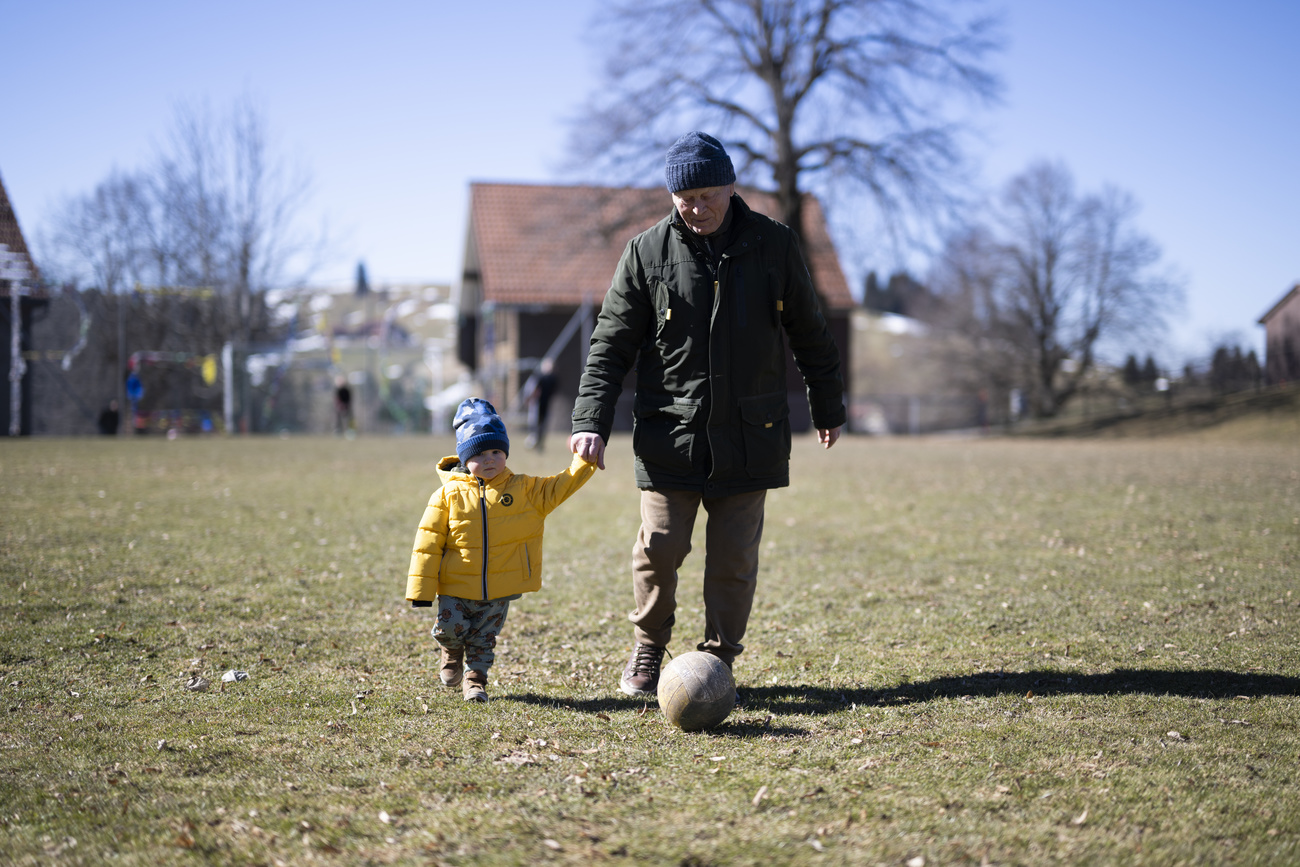
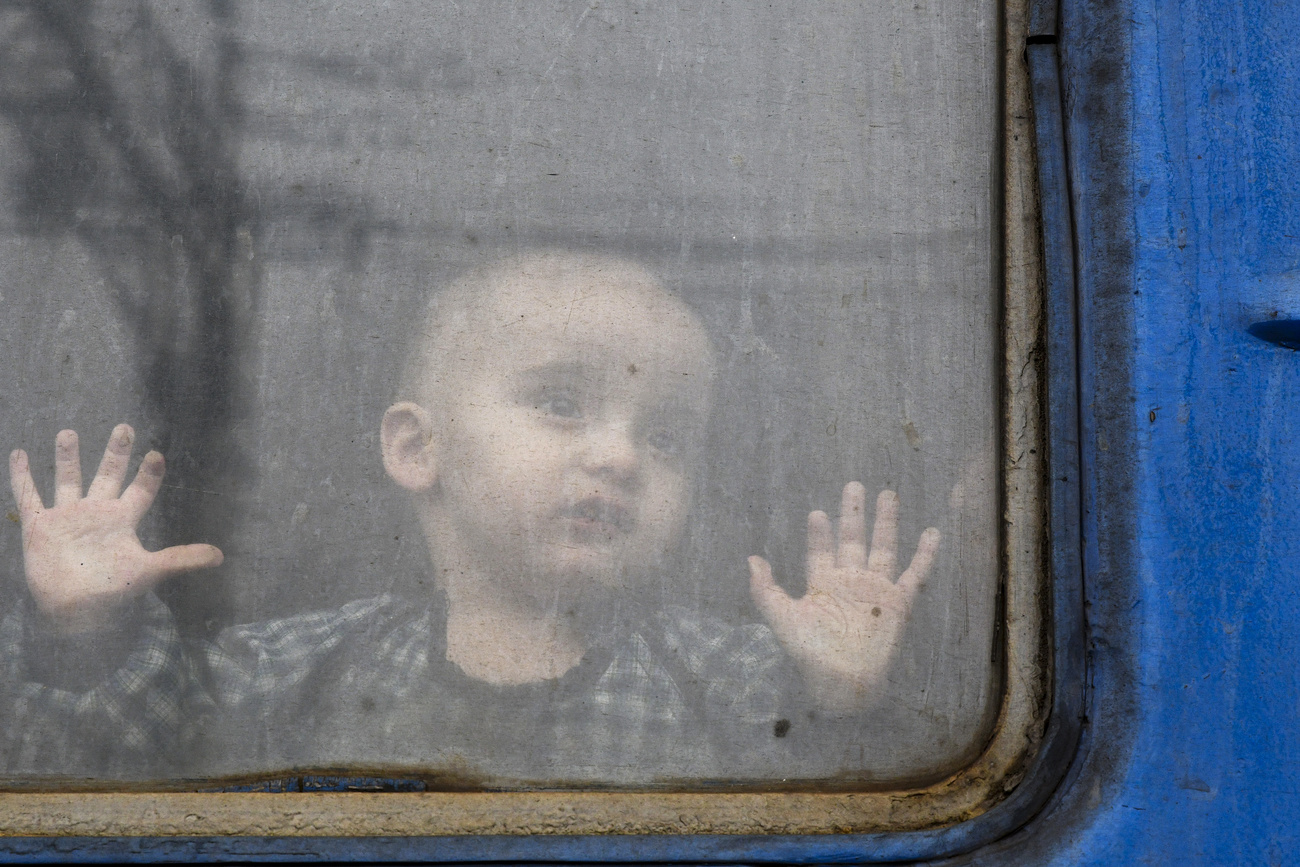

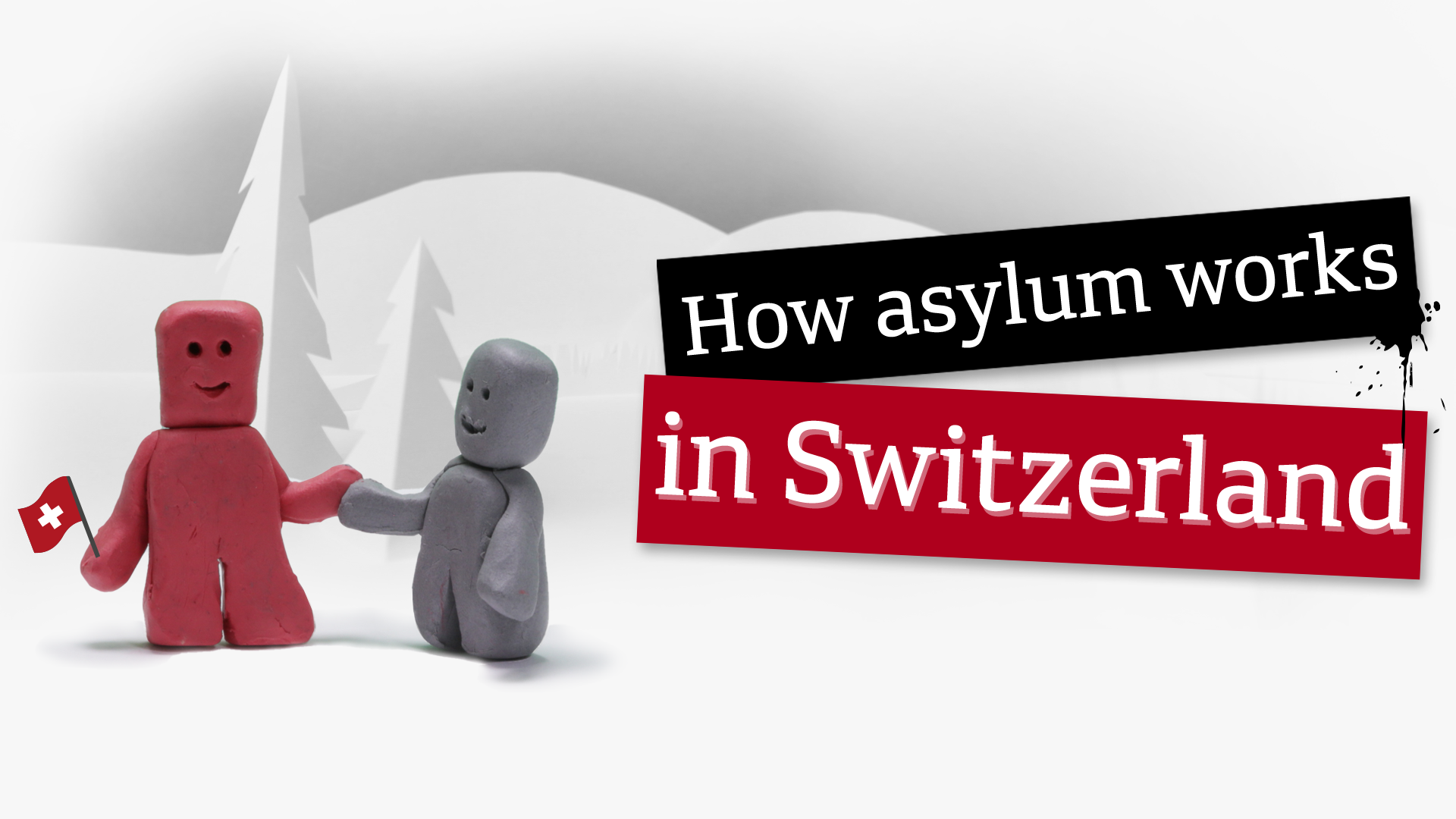
You can find an overview of ongoing debates with our journalists here . Please join us!
If you want to start a conversation about a topic raised in this article or want to report factual errors, email us at english@swissinfo.ch.